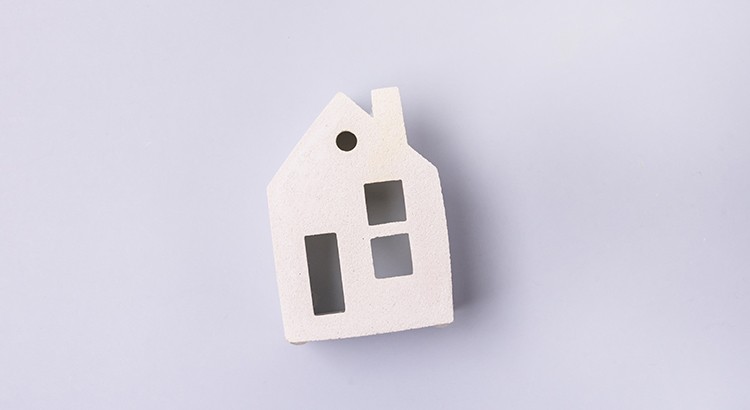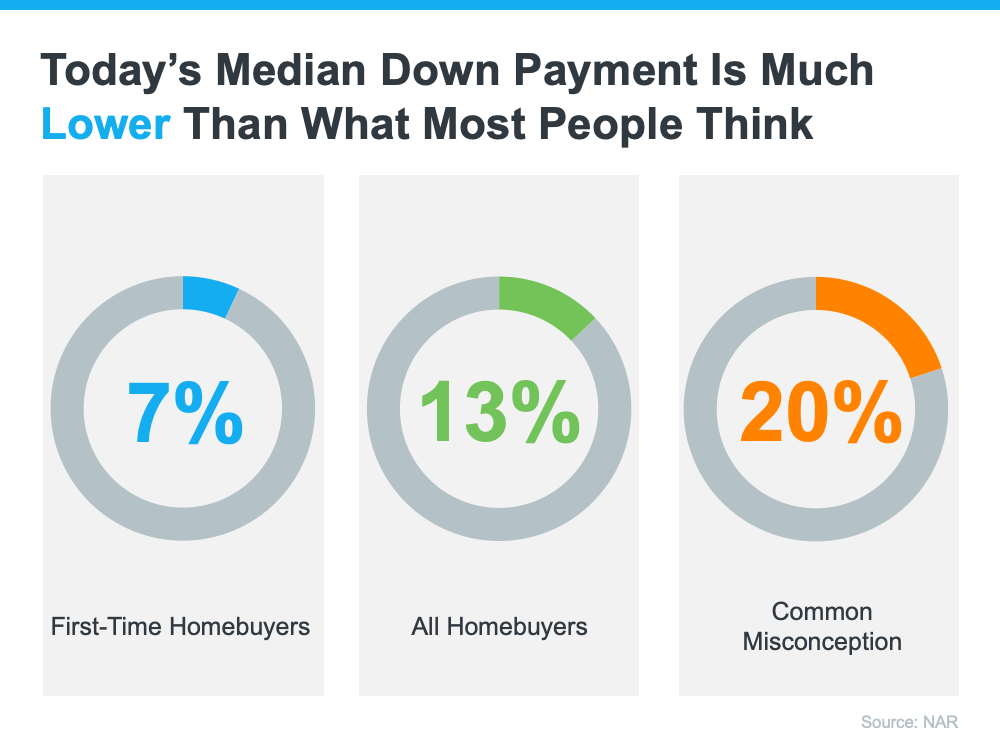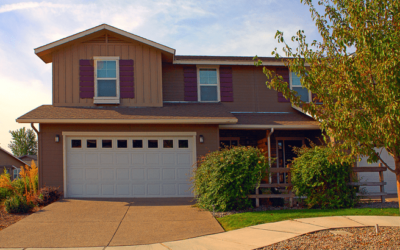
“Unless specified by your loan type or lender, it’s typically not required to put 20% down.”
As you set out on your homebuying journey, you likely have a plan in place, and you’re working on saving for your purchase. But do you know how much you actually need for your down payment?
If you think you have to put 20% down, you may have set your goal based on a common misconception. Freddie Mac says:
“The most damaging down payment myth—since it stops the homebuying process before it can start—is the belief that 20% is necessary.”
Unless specified by your loan type or lender, it’s typically not required to put 20% down. According to the Profile of Home Buyers and Sellers from the National Association of Realtors (NAR), the median down payment hasn’t been over 20% since 2005. It may sound surprising, but today, that number is only 13%. And it’s even lower for first-time homebuyers, whose median down payment is only 7% (see graph below):
What Does This Mean for You?
While a down payment of 20% or more does have benefits, the typical buyer is putting far less down. That’s good news for you because it means you could be closer to your homebuying dream than you realize.
If you’re interested in learning more about low down payment options, there are several places to go. There are programs for qualified buyers with down payments as low as 3.5%. There are also options like VA loans and USDA loans with no down payment requirements for qualified applicants.
To understand your options, you need to do your homework. If you’re interested in learning more about down payment assistance programs, information is available through sites like downpaymentresource.com. Be sure to also work with a real estate advisor from the start to learn what you may qualify for in the homebuying process.
Bottom Line
Remember: a 20% down payment isn’t always required. If you want to purchase a home this year, let’s connect to start the conversation and explore your down payment options.
To view original article, visit Keeping Current Matters.
What’s Behind Today’s Mortgage Rate Volatility?
The best way to navigate this landscape is to have a team of real estate experts by your side.
Don’t Let These Two Concerns Hold You Back from Selling Your House
Working with a local real estate agent is the best way to see what inventory trends look like in your area.
More Homes, Slower Price Growth – What It Means for You as a Buyer
Having a real estate agent who knows the local area can be a big advantage when you start the buying process.
What’s Motivating Homeowners To Move Right Now
Selling your home isn’t just about market conditions or mortgage rates—it’s also about making the best decision for your lifestyle and future.
The Majority of Veterans Are Unaware of a Key VA Loan Benefit
VA home loans are designed to make homeownership a reality for those who have served our country.
Renting vs. Buying: The Net Worth Gap You Need To See
If you’re on the fence, it may be helpful to speak with a local real estate agent. They can help you weigh your options.






